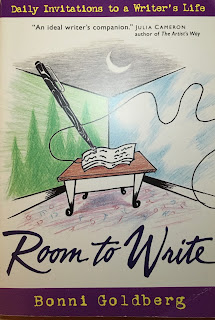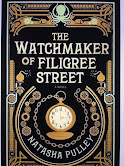Five Ways to Keep Writing by Theresa Gauthier
Writing is a muscle that must be exercised if you’re going to improve. That said, it’s as difficult to get into the habit of exercising your writing muscles as it is to adopt a successful regimen of physical exercise. I’ve put together a list of the best five ways I’ve found. This is by no means an exhaustive list. There are more ways to do this than there are writers.
1. Start your writing day with a journaling exercise. Write about your day so far, or write about what you plan to write, or write a list of five ideas that have come to you whether they’re related to your current project or not. I like to keep a list of potential titles. I add to it every few days. Your journal can be electronic and stored on your laptop or phone or it might even be an old school physical journal. Whichever you prefer, set it up to tackle an entry each day.
2. Start a dream diary. Keep a blank book or even your phone or iPad or laptop by your bed. As soon as you wake, type out what you can remember of your dreams. If a strong dream or a nightmare wakes you in the middle of the night, write it down as soon as you’re awake. These things may come to nothing, but there might be an emotion, a phrase, or even just a kernel of an idea that could well lead to something. At the very least, you’ll have some dreams to hand off to your characters if you need one of them to have been plagued by a nightmare or recurring dream.
3. Carry a notebook or make sure you download an app for keeping notes. Even use a digital recording app to dictate notes to yourself. Having something with you at all times makes it more likely that when that one good idea comes to you, you won’t forget it. You can be as detailed as you need to be. If you’re in a rush, just record or write the bare bones—enough information to keep you from forgetting whatever came to you. If there’s more time, you may even want to start fleshing out the idea, deciding how complex it can become and how many ideas it generates.
4. Invest in a book of writing prompts or use any book or object to create your own. Good books of prompts include:
Room to Write by Bonni Goldberg
The 3 a.m. Epiphany by Brian Kiteley
Or you can use a dictionary. Turn to any random page and pick any random word, and that’s your prompt. You can use any song lyric, any title of a movie or book, even a line of dialogue from your favorite TV show or film. You can even switch on the TV or radio and use whatever line you hear first as your writing prompt.
If you don’t have a lot of time, set a limit. A few minutes, or as many as you like can get your creativity flowing before you tackle your project.
5. Start a writer’s group with friends. Just having someone or even a group of people who are all tackling a writing project gives you the encouragement you need to keep coming up with ideas, give you other authors with whom you can bounce ideas around, or even someone with whom you can ask grammar questions or try out your characters’ dialogue.
Whether you go it alone or find yourself in a community of writers, the best way to get anywhere is to keep writing.








Comments
Post a Comment